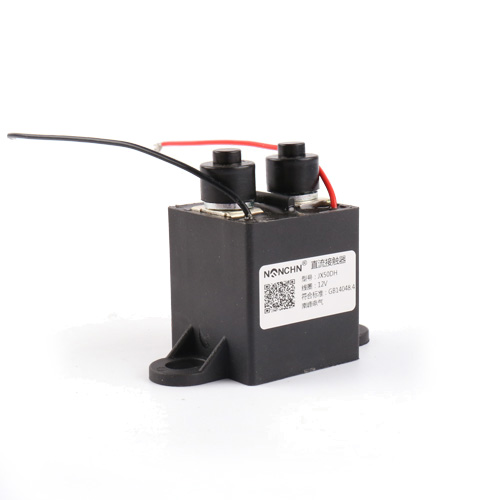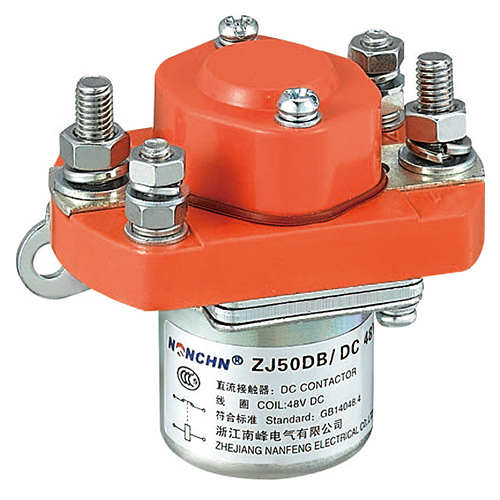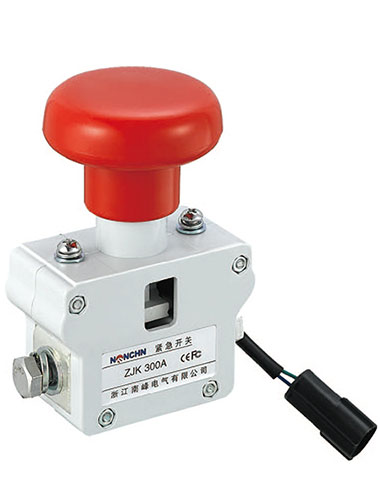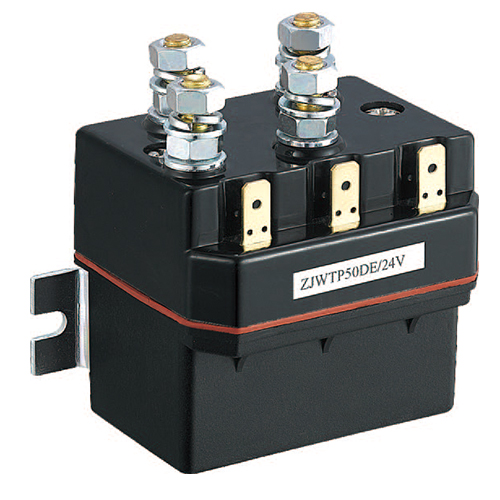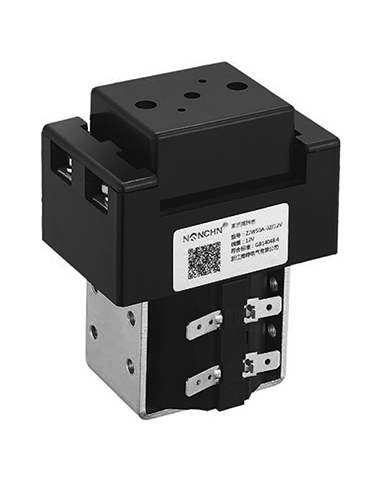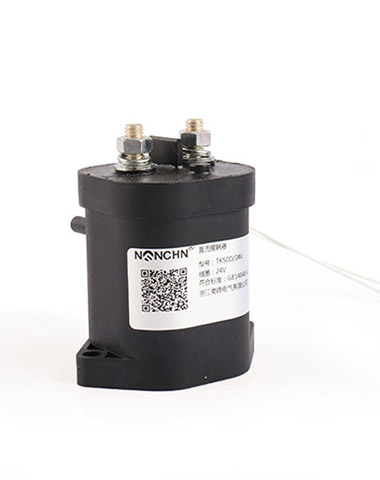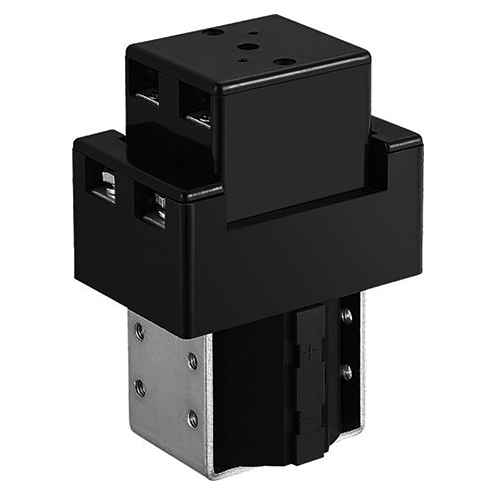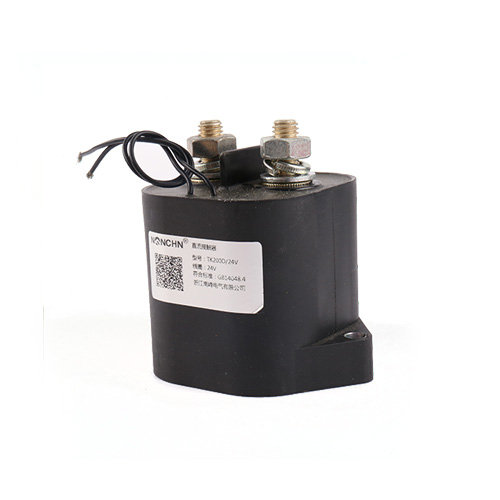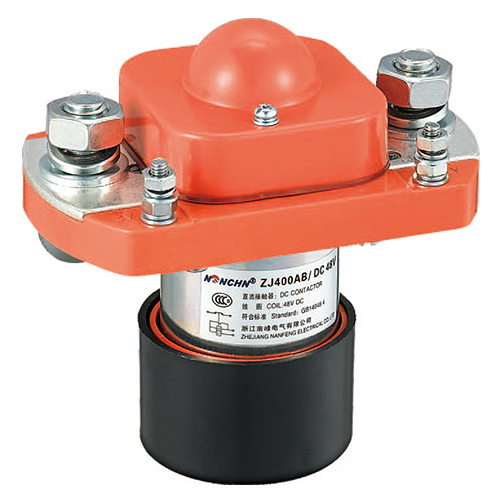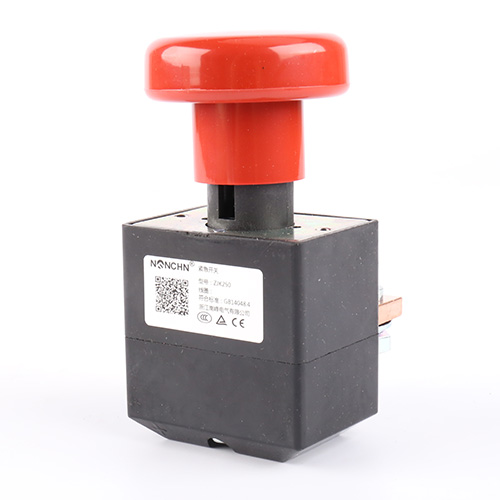DC contactors are electrical devices designed to control the flow of direct current (DC) in a circuit. They play a crucial role in various applications, including motor control, power distribution, and industrial machinery. The basic operation of DC contactors involves the use of electromagnetic principles to open or close electrical circuits.
Components of DC Contactors
(1)Coil:
The core component of a DC contactor is an electromagnetic coil. When an electric current passes through the coil, it generates a magnetic field.
(2)Contacts:
Contacts are the switch-like components within the contactor that open or close the electrical circuit. They are typically made of materials with high conductivity and are designed to handle the electrical load.
(3)Armature:
Connected to the coil, the armature is a movable part within the contactor. When the coil is energized, the magnetic field attracts the armature, causing it to move.
(4)Operation:
De-energized State (Contacts Open):
In the de-energized state, when there is no current flowing through the coil, the contacts remain open. This prevents the flow of current through the main electrical circuit.
Energized State (Contacts Closed):
When an electric current is applied to the coil, it creates a magnetic field that attracts the armature. As the armature moves, it brings the contacts together, closing the circuit and allowing current to flow through.
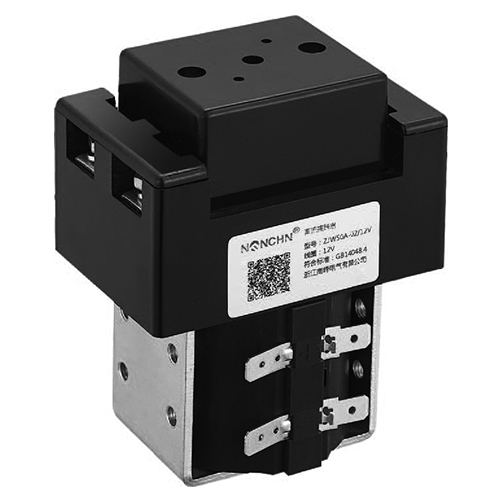
DC contactor Applications
(1)Motor Control:
DC contactors are commonly used in motor control applications, allowing for the efficient start, stop, and reversing of DC motors.
(2)Power Distribution:
They play a vital role in power distribution systems, controlling the flow of electricity in industrial settings.
Switching High DC Loads:
DC contactors are capable of handling high current loads, making them suitable for applications with substantial power requirements.
DC contactor Advantages
(1)Reliability:
DC contactors are known for their reliability and long lifespan.
(2)Remote Control:
They can be easily integrated into control systems, allowing for remote operation.
Maintenance:
Minimal maintenance is required, contributing to their durability in various environments.
DC contactors function by utilizing electromagnetic forces to control the opening and closing of electrical circuits. Their versatility and reliability make them essential components in numerous electrical and industrial applications.


